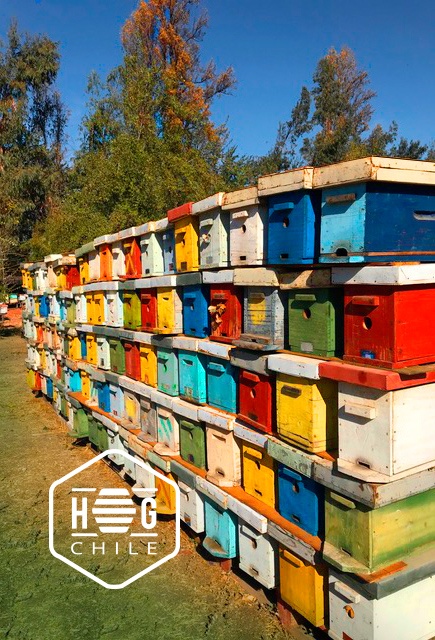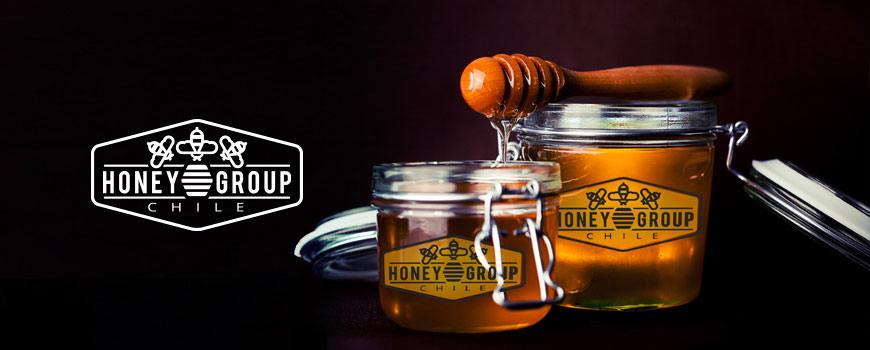Honey Properties

Molan, P. C. (1992). The antibacterial activity of honey: 1. The nature of the antibacterial activity. Bee World, 73(1), 5-28.
In the case of CHILE, we have some of the most valuables and pure honey´s of the world. Chile is a pristine country out of industrial focus then our forests and differents variaties of trees gave us an unique opportunity to have a very good product.
According a study from BIO MEDICAL Center from Ireland 2010 : “Comparison of the antimicrobial activity of Ulmo honey from Chile and Manuka honey against methicillin-resistant Staphylococcus aureus, Escherichia coli and Pseudomonas aeruginosa Orla “
We tested the antimicrobial activity of a Chilean honey made by Apis mellifera (honeybee) originating from the Ulmo tree (Eucryphia cordifolia), against selected strains of bacteria. Methods: Ulmo 90 honey was compared with manuka UMF® 25+ (Comvita®) honey and a laboratory synthesised (artificial) honey. An agar well diffusion assay and a 96 well minimum inhibitory concentration (MIC) spectrophotometric-based assay were used to assess antimicrobial activity against five strains of methicillin-resistant Staphylococcus aureus (MRSA), Escherichia coli and Pseudomonas aeruginosa.
Results: Initial screening with the agar diffusion assay demonstrated that Ulmo 90 honey had greater antibacterial activity against all MRSA isolates tested than manuka honey and similar activity against E. coli and P. aeruginosa.
The MIC assay, showed that a lower MIC was observed with Ulmo 90 honey (3.1% – 6.3% v/v) than with manuka honey (12.5% v/v) for all five MRSA isolates. For the E. coli and Pseudomonas strains equivalent MICs were observed (12.5% v/v). The MIC for artificial honey was 50% v/v. The minimum bactericidal concentration for all isolates tested for Ulmo 90 honey was identical to the MIC. Unlike manuka honey, Ulmo 90 honey activity is largely due to hydrogen peroxide production.
Conclusions: Due to its high antimicrobial activity, Ulmo 90 may warrant further investigation as a possible alternative therapy for wound healing
Cite this article as: Sherlock et al.: Comparison of the antimicrobial activity of Ulmo honey from Chile and Manuka honey against methicillin-resistant Staphylococcus aureus, Escherichia coli and Pseudomonas aeruginosa. BMC Complementary and Alternative Medicine 2010 10:47.
Other health Benefits of Honey
Prevent cancer and heart disease
It contains flavonoids, antioxidants which help reduce the risk of some cancers and heart disease.
Reduce ulcers and other gastrointestinal disorders
Recent research shows that honey treatment may help disorders such as ulcers and bacterial gastroenteritis. This may be related to the 3rd benefit.
Anti-bacterial, anti-fungal, anti-fungal
“All honey is antibacterial because the bees add an enzyme that makes hydrogen peroxide,” said Peter Molan, director of the Honey Research Unit at the University of Waikato in New Zealand.
Increase athletic performance
Ancient Olympic athletes would eat honey and dried figs to enhance their performance. This has now been verified with modern studies, showing that it is superior in maintaining glycogen levels and improving recovery time than other sweeteners.
Reduces a cough and throat irritation
It helps with coughs, particularly buckwheat honey. In a study of 105 children, a single dose of buckwheat honey was just as effective as a single dose of dextromethorphan in relieving nocturnal cough and allowing proper sleep.
Balance the 5 elements
It has been used in Ayurvedic medicine in India for at least 4000 years and is considered to affect all three of the body’s primitive material imbalances positively. It is also said to be useful in improving eyesight, weight loss, curing impotence and premature ejaculation, urinary tract disorders, bronchial asthma, diarrhea, and nausea.
Honey is referred as “Yogavahi” since it has a quality of penetrating the deepest tissues of the body. When honey is used with other herbal preparations, it enhances the medicinal qualities of those preparations and also helps them to reach the deeper tissues.Blood sugar regulation
Even though it contains simple sugars, it is NOT the same as white sugar or artificial sweeteners. Its exact combination of fructose and glucose actually helps the body regulate blood sugar levels. Some kinds of honey do have a low hypoglycemic index, so they don’t jolt your blood sugar.
Heal wounds and burns
External application of honey has been shown to be as effective as conventional treatment with silver sulfadiazine. It is speculated that the drying effect of the simple sugars and honey’s antibacterial nature combine to create this effect. Studies have shown it to be very successful in healing wounds.
Probiotic
Some varieties possess large amounts of friendly bacteria. This includes up to 6 species of lactobacilli and 4 species of bifidobacteria.
10. Strengthen the immune system Chilean Ulmo Honey has been found to had greater antibacterial activity against all MRSA isolates tested than manuka honey and similar activity against E. coli and P. aeruginosa
Cautions
- Best not to feed to infants. Spores of Clostridium botulinum have been found in a small percentage of honey in North America. This is not dangerous to adults and older children, but infants can have a serious reaction of illness in the first year. Do not add honey to baby food or use as a soother to quiet a fussy or colicky baby.
- It is a sugar, so do not eat jars full of it if you value your good health and want to maintain a healthy weight. It has a high caloric value and will put you on a sugar high and low.
until I get to the bottom of this.

 Certificate Analisis
Certificate Analisis

